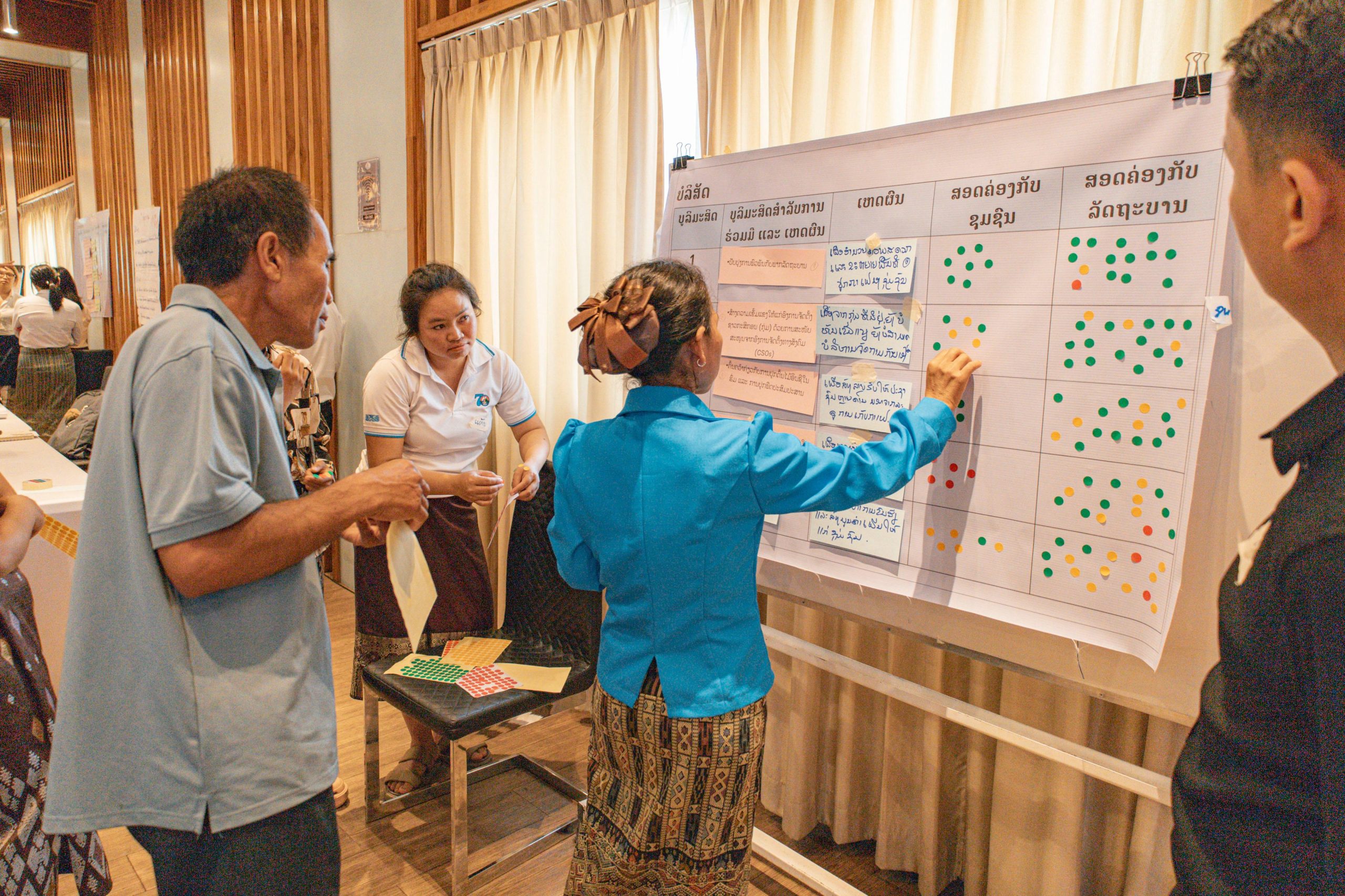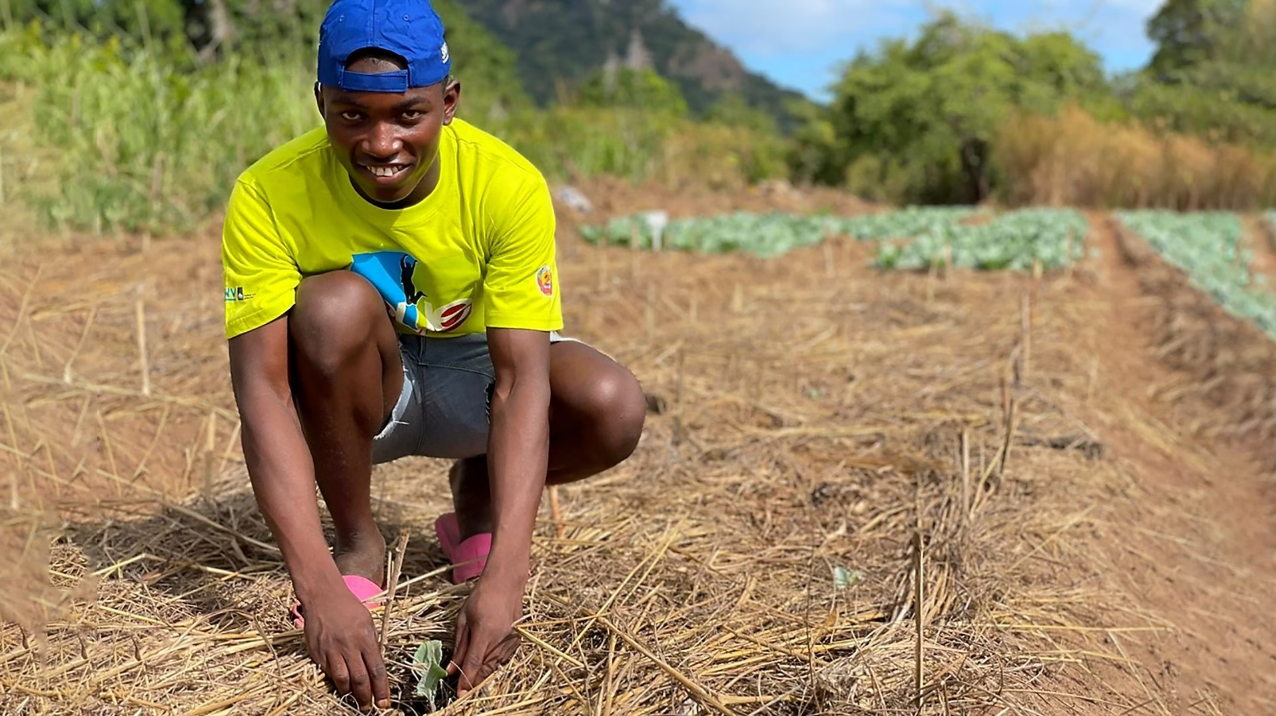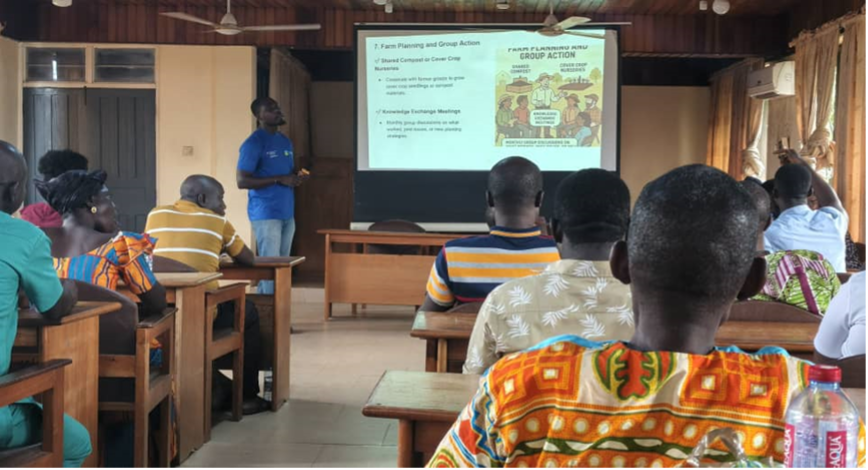
Reimagining farming systems in Ghana
Reporting by Dominique le Roux and Eunice Offei
Across three dynamic days in August 2025, our TLI programme brought together farmers, facilitators, and partners in Ghana to explore how agroecology can transform farming systems from the ground up. Through a blend of theory, practice, and reflection, the Community of Practice (CoP) training — held from 25 to 28 August — offered more than just new techniques. It provided a platform for farmers to share knowledge, challenge assumptions, and co-create locally rooted solutions to the twin pressures of climate change and land degradation.
From turning palm residues into compost to using neem and garlic sprays as natural pest control, participants discovered practical, low-cost methods for improving soil health, water conservation, and biodiversity within oil palm landscapes. They also dug deeper into systemic barriers – from land-tenure insecurity to labour constraints – and identified what’s working: farmer associations, indigenous knowledge, and the power of collective action.
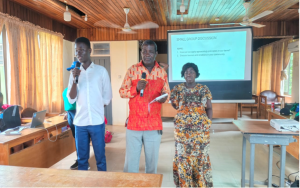
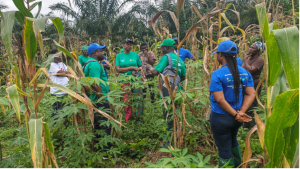
A highlight of the training was the introduction of a dedicated gender session led by Mrs Thelma of Abantu for Development, which revealed how empowering women is not peripheral but essential to achieving sustainability and equity in land use. The field visit that followed connected principles to practice — from meeting a woman farmer in James Town, Kade, who is integrating crops and livestock on her smallholding, to touring Ghana Oil Palm Development Company’s bio-gas plant, where waste becomes clean energy.
The week ended with a shared sense of purpose: that building resilient, climate-smart landscapes begins with empowering the people who steward the land.
We have learned to work with nature, not against it
– training participant
Learning from the land
The training opened with a session on Promoting Agroecology for Sustainable Land Use, facilitated by Ransford Sackey of Kasa Initiative Ghana. He began by acknowledging the changing climate realities in Ghana – from unpredictable rains to prolonged dry spells – and framed agroecology as both an ecological and social solution.
Agroecology is farming that works with nature to grow food in a way that is good for people, the soil, and the environment.”
Ransford Sackey, Kasa Initiative Ghana
Through a series of interactive modules, smallholder and out-grower farmers explored how to apply these ideas directly to their farms. Composting palm residues and household waste, intercropping maize, cassava, vegetables and groundnuts, integrating goats and poultry for weed control and manure, planting shade trees for biodiversity and income diversification – each practice was presented as an achievable, low-cost step toward resilience.
The use of local language, visual aids, and live demonstrations made the sessions highly engaging. Farmers raised practical questions – from “How thick should mulch be?” to “How much soap should we add to the neem solution?” – reflecting not just curiosity but readiness for real-world application.
Barriers, enablers, and collective solutions
Group discussions revealed a strong appetite for change, tempered by honest recognition of challenges.
- Enablers identified by participants included the abundance of natural materials such as palm fronds and kitchen waste, the existence of informal farmer networks, and a shared desire to reduce dependence on costly chemical inputs.
- Barriers, meanwhile, ranged from the labour-intensive nature of composting to limited access to quality seedlings and secure land rights.
These open discussions underscored the importance of collaboration. Farmers suggested forming composting collectives and knowledge-sharing groups to overcome resource constraints – a tangible example of the cooperative spirit that defines the TLI Community of Practice.
Gender as a catalyst for change
Responding to feedback from the first day, the second day’s agenda featured a dedicated session on Gender and Agroecology, delivered by Mrs Thelma from Abantu for Development.
Her presentation unpacked how women farmers face specific constraints, from limited access to credit and land to cultural expectations that restrict their participation in decision-making. Yet it also highlighted their central role in driving agroecological transitions.
When women gain equal access to resources and training, they tend to adopt sustainable practices more quickly, manage diverse crops more efficiently, and reinvest in community well-being. Participants reflected deeply on these insights, discussing how to better involve women in farmer groups, cooperative leadership, and knowledge exchange.
The inclusion of this session – added mid-programme in direct response to participant feedback – exemplified TLI’s adaptive learning approach and commitment to inclusivity.
From field to factory
On the third day, theory met practice. Participants visited a woman smallholder farmer in James Town, Kade, whose farm exemplifies mixed cropping, water harvesting, and organic fertilisation. Her openness about both achievements and challenges offered a grounded, relatable perspective on the realities of practising agroecology in rural Ghana.
The group then travelled to the Ghana Oil Palm Development Company (GOPDC), where they toured the nursery yard and bio-gas plant. GOPDC’s use of palm-processing waste to generate renewable energy provided a striking example of how industrial operations can integrate circular-economy principles. For many participants, it was a moment of inspiration – proof that sustainability is possible at every scale, from a single hectare to a corporate plantation.
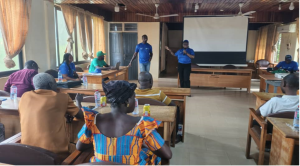
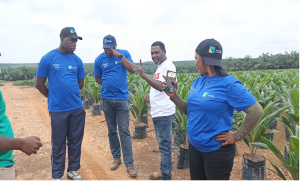
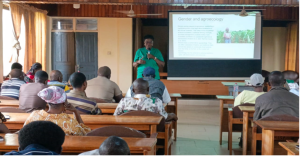
Lessons learned and the road ahead
The three-day programme was not only a training event but a process of co-creation and reflection. Daily debriefings helped refine facilitation methods, and the inclusion of local languages enhanced participation. The key lesson? Learning is most powerful when it is iterative, inclusive, and grounded in the lived experience of those who farm the land.
Going forward, the team plans to strengthen gender integration, expand practical demonstrations, and develop easy-to-use handouts with composting and natural pesticide recipes. More importantly, the next phase will focus on engagement under Free, Prior and Informed Consent (FPIC) principles – ensuring that all future collaboration with communities is transparent, participatory, and rights-based.
This will include dialogue with traditional leaders, landowners, women, migrants, and persons with disabilities to ensure that TLI’s work continues to reflect not only the ecological but also the social dimensions of sustainability.
Planting the seeds of transformation
By the end of the week, it was clear that this was more than a capacity-building exercise. It was a collective affirmation that sustainable farming is both possible and necessary – and that transformation begins not with technology, but with people.
The farmers’ enthusiasm, the facilitators’ commitment, and the integration of gender and equity considerations all point towards a more inclusive and resilient agricultural future.
Through this shared journey of learning, the Transformative Land Investment project and our partners are helping to cultivate not only healthier soils, but stronger communities and more equitable landscapes across Ghana and beyond.
Acknowledgement
This workshop was organized together with SNV Ghana under the TLI project, generously funded by the Swiss Agency for Development and Cooperation (SDC).


